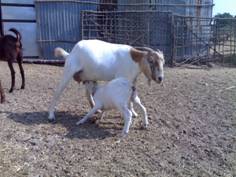
Introduction:
Goat farming, also known as caprine farming, is a rewarding and lucrative agricultural venture that has gained popularity in recent years. Goats are versatile animals that provide various products such as milk, meat, and fiber. They are relatively easy to raise and require less space and investment compared to other livestock. However, like any farming endeavor, goat farming comes with its own set of challenges. In this blog, we will explore some of the common challenges faced by goat farmers and strategies to overcome them.
Selecting the Right Goat Breeds:
Choosing the right goat breeds is crucial for the success of your goat farming venture. Different breeds have different characteristics and are suited for specific purposes such as milk production, meat production, or fiber production. Conduct thorough research on various goat breeds, their adaptability to your climate, and the market demand for their products. Consider factors such as disease resistance, growth rate, fertility, and overall suitability to your farming system.
Housing and Infrastructure:
Providing adequate housing and infrastructure for your goats is essential for their well-being and productivity. Goats require shelter from harsh weather conditions and protection from predators. Design and construct sturdy and well-ventilated shelters that can accommodate the number of goats you plan to raise. Ensure proper drainage and cleanliness to prevent the spread of diseases. Additionally, create separate areas for kidding, feeding, and milking to streamline your operations.
Feeding and Nutrition:
Goats are known for their browsing and grazing habits, but relying solely on natural forage may not meet their nutritional requirements. Develop a well-balanced feeding program that includes a combination of pasture, hay, grains, and supplements. Ensure access to clean water at all times. Consulting a livestock nutritionist or veterinarian can help you create an optimal diet plan for your goats based on their age, breed, and purpose.
Disease Management:
Disease outbreaks can severely impact the health and productivity of your goat herd. Implement a robust disease management plan that includes regular vaccinations, deworming, and monitoring for common goat ailments. Work closely with a veterinarian to identify and treat any health issues promptly. Quarantine new goats before introducing them to your existing herd to prevent the spread of diseases.
Breeding and Reproduction:
Breeding and reproduction play a vital role in sustaining your goat farming business. However, ensuring successful breeding and managing kidding can be challenging. Learn about the breeding cycles and reproductive behavior of your chosen goat breeds. Monitor the heat cycles of your does and use effective breeding techniques such as natural mating or artificial insemination. Educate yourself on the signs of impending labor and be prepared for assisting with difficult births if necessary.
Marketing and Sales:
Finding a profitable market for your goat products can be a hurdle for many farmers. Research local demand and consumer preferences for goat milk, meat, and other products. Establish relationships with local restaurants, farmers’ markets, and specialty stores to sell your products. Utilize online platforms and social media to reach a wider audience. Networking with other goat farmers and joining relevant industry associations can also provide valuable marketing opportunities.
Conclusion:
Goat farming can be a fulfilling and economically viable venture when approached with the right knowledge and strategies. By addressing the challenges associated with breed selection, housing, nutrition, disease management, breeding, and marketing, you can maximize the potential of your goat farming business. Remember to stay updated on industry trends, seek advice from experts, and continuously adapt your practices to ensure the long-term success of your goat farm.


